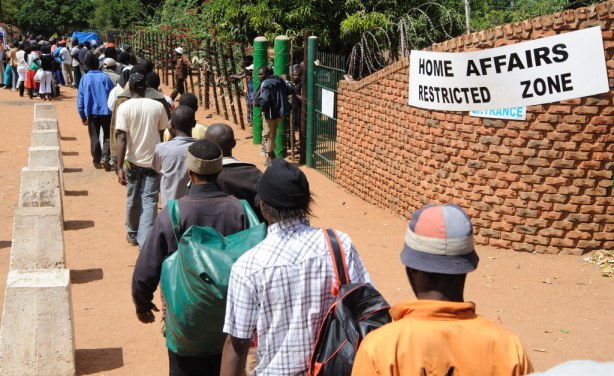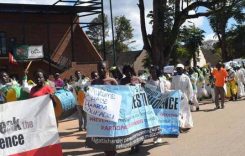On November 25, the South African government announced it would not extend the validity of special permits first granted to Zimbabwean immigrants in 2009 beyond December 2022.
Background
South Africa recorded an influx of Zimbabweans entering that country without appropriate documentation between 2007 and 2008, at the peak of Zimbabwe’s economic and political crisis.
Asylum seekers in South Africa, 1998-2018. Source: Department of Home Affairs, South Africa
In 2009, the South African government decided to offer undocumented Zimbabweans special permits for a five-year period. A total of 242 731 Dispensation for Zimbabwe Permits (DZP) were issued.
Upon expiry of the DZPs, the South African government extended the permits by another three years, with 197 839 Zimbabwe Special Permits (ZSP) being issued In 2014.
This was followed by the Zimbabwe Exemption Permits (ZEP), under which about 180 000 permits were issued, with a December 2021 expiry.
What did South Africa’s Cabinet decide?
At its meeting on 24 November 2021, South Africa’s Cabinet resolved to no longer extend the special permits, but offered a 12 month grace period for holders.
“Following its deliberations, Cabinet decided to no longer issue extensions to the Zimbabwean special dispensations. However, it decided on a 12 months grace period at the expiry of the current ZEP,” the South African government said in a statement.
What happens now?
The South African government has invited holders of the special ZEP permits to apply for other permits “appropriate to their particular status or situation.”
At the expiry of the 12-month grace period in December 2022, those who would not have succeeded in acquiring appropriate permits will be required to leave South Africa or face deportation.
Other SADC states with special SA permits
Lesotho Special Project (LSP):
In 2017, South Africa issued 94 941 special permits to Lesotho nationals under an amnesty programme that mostly targeted people from Lesotho who were using fraudulent South African documentation. This scheme targeted persons who had entered South Africa before 30 September 2015.
Mozambican amnesty:
Between 1999-2000, South Africa offered permanent residence status to Mozambican refugees. A total 82 969 Mozambicans acquired permanent residence status, out of 130 748 applicants.
Angolan Special Permit (ASP):
In 2013, the South African government offered voluntary repatriation to Angolan refugees from the civil war. About 1 757 people applied for the ASP.
“Miners’ amnesty”:
In 1995, South Africa offered permanent residence to “anyone who had voted in the 1994 elections and who had been normally resident in South Africa for more than 10 years.” This scheme was known as the “miners’ amnesty” because mining industry records were mostly used to prove residence status.
This attracted 51 000 applicants, mainly from Lesotho.
General amnesty for SADC citizens:
In July 1996, South Africa extended a general amnesty to SADC migrants resident in South Africa.
Permanent residence would be granted to SADC citizens who “could prove they had continuously lived in South Africa since at least July 1, 1991, had no criminal record, and were either economically active or married to a South African, or had dependent children who were born or were residing lawfully in South Africa.”
This scheme was expected to attract about 1 million applicants, but only drew 201 602 people, with 124 073 being granted permanent residence status. Mozambicans dominated the applications.
Do you want to use our content? Click Here












